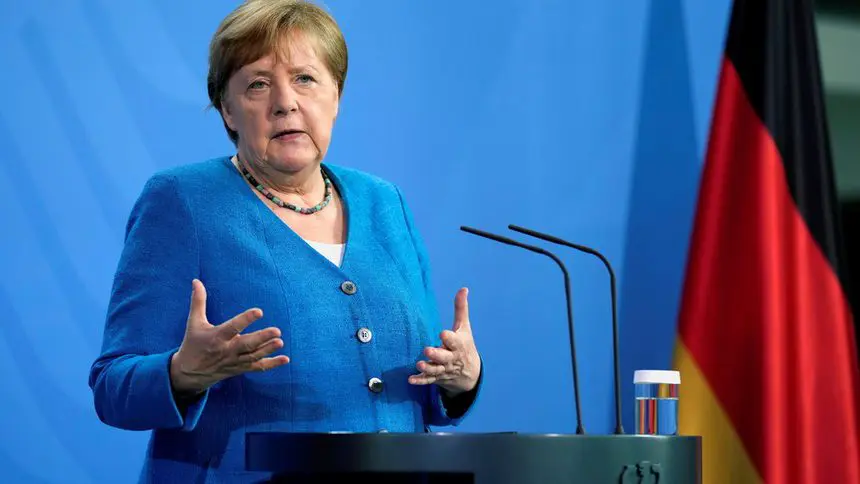We could not have foreseen that Bulgaria would block the start of Northern Macedonia’s negotiations with the European Union “when, after resolving the name dispute between Skopje and Athens, Sofia” suddenly “intervened.
This was said by German Chancellor Angela Merkel at her last – virtual – summit of the Berlin Process. The leaders of the Western Balkans, Bulgaria, Greece, Croatia, Slovenia, Italy, Austria and France also took part. Germany has chaired the Berlin Process since January 1, 2021.
Merkel’s comment follows Bulgaria‘s two-time veto on starting talks with northern Macedonia.
Sofia formed a position with specific conditions for Skopje a little over a year and a half ago, and at the time the chancellor was talking about – the moment after the signing of the Prespa Treaty in 2018 – Northern Macedonia’s commitments were formulated much more generally in the Neighborhood Agreement. At the time, Greece seemed to be the last serious obstacle to the start of membership talks, which the European Commission has identified for several years as ready to begin.
Merkel added that in the 16 years she spent in power in Germany (she withdrew after the autumn elections because she is not a candidate), there have been successes and positive news from the Balkans, but also “a number of difficulties”. He cited among them the dispute between Serbia and Kosovo, the troubled electoral system of Bosnia and Herzegovina and the conflict over cultural and historical issues between northern Macedonia and Bulgaria. At this point, you need “a lot of commitment and a lot of patience.”
Following the settlement of the name dispute between Greece and Northern Macedonia, the Kosovo issue, still considered a province by Serbia, and unresolved issues in Bosnia and Herzegovina were considered the last serious crises in the Balkans (the latest issue in Bosnia being electoral weaknesses). , although others, such as the tensions between Sarajevo and Banja Luka, have enjoyed more attention over the years).
At the same meeting, caretaker Prime Minister Stefan Yanev expressed Bulgaria’s understanding that “the European perspective continues to be a key driver for transformation in the Western Balkans,” the press service of the Council of Ministers quoted him as saying.
Although Merkel and EU officials reiterated their call for a European future in the Balkans, the Berlin Process is not about enlargement, but began in 2014 as an alternative to promote faster work on common projects in the Western Balkans and joint ones with the EU.
Among the important achievements is the elimination of roaming between the countries of the Western Balkans, another is the awareness of a regional youth network. There are also steps towards a common regional market, although some critics say they overlap with the “mini Schengen” initiative of Serbia, Albania and northern Macedonia.







